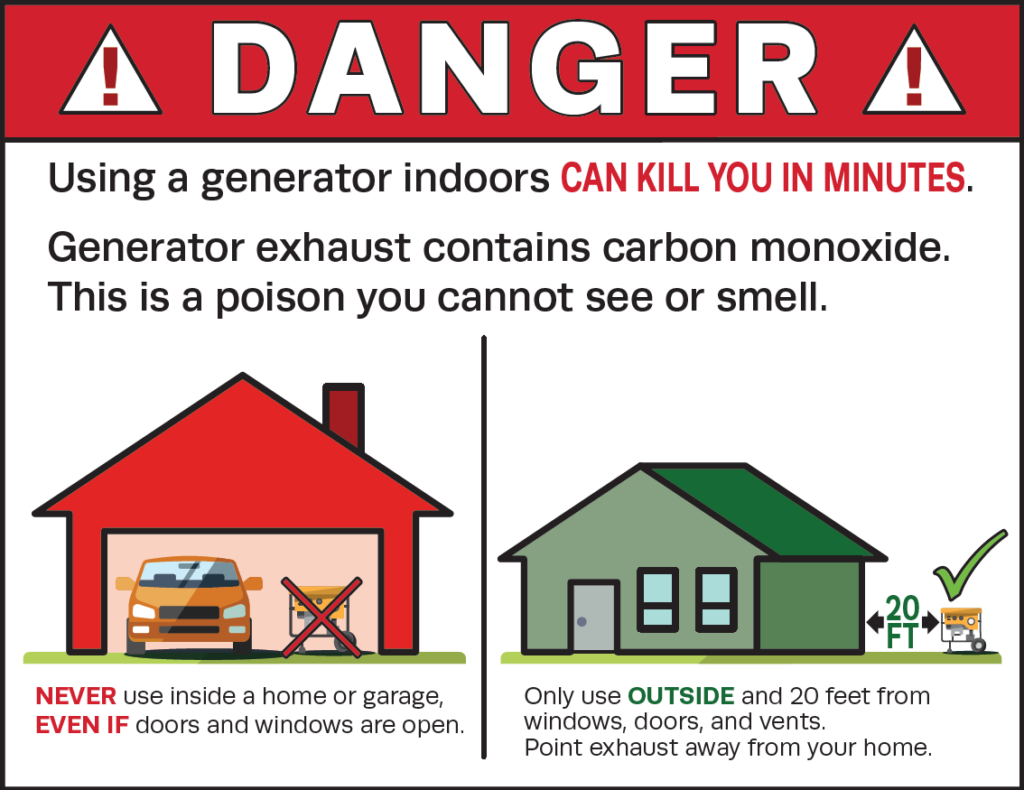NORTH HAVEN — Chief Paul Januszewski would like to remind North Haven residents of some safety tips and precautions when using generators.
Generators are often used during power outages to provide backup power to a home or business, but can be dangerous if they are used incorrectly and can cause fire, electrocution or carbon monoxide poisoning.
According to the non-profit organization Electrical Safety Foundation International (ESFI), 739 carbon monoxide deaths associated with portable generators were reported to the Consumer Product Safety Commission (CPSC) between 1999 and 2012. Half of all portable generator-related carbon monoxide deaths occurred during the winter months and 69% of fatalities involving generator use in the home occurred when a generator was placed in the living area or basement of the home.
“Generators are useful in severe weather or other situations where power outages occur, however it’s important that residents know how to safely use generators,” Chief Januszewski said. “When preparing to use a generator, homeowners should be sure they have a carbon monoxide detector and that it is working properly, as well as familiarize themselves with the symptoms of carbon monoxide poisoning.”
Chief Januszewski would like to offer the following tips from the ESFI to use your generator safely:
- Make sure your home is equipped with a battery-operated or battery back-up carbon monoxide alarm.
- Never operate a generator inside your home or in other enclosed or partially-enclosed spaces. Generators can very quickly produce high levels of carbon monoxide (CO), which can be deadly. Opening doors and windows or operating fans to attempt to ventilate a generator will not prevent carbon monoxide build-up in the home.
- Do not overload the generator.
- Plug appliances directly into the generator or use a heavy-duty, outdoor rated extension cord. Make sure extension cords used with generators are rated for the load and have three-pronged plugs. They should be inspected for damage, such as cuts and/or worn insulation before use.
- Turn off all appliances powered by the generator before shutting down the generator.
- Make sure fuel for the generator is stored safely, away from living areas, in properly labeled containers, and away from fuel-burning appliances. Before re-fueling, always turn the generator off and let it cool down.
- A generator is a temporary power source. Use a generator only when necessary to power essential equipment or appliances.
- Keep children away from portable generators at all times.
Residents are also reminded that carbon monoxide, also known as the “invisible killer,” is an odorless, colorless, tasteless and poisonous gas. If you feel dizzy or weak, you should get to fresh air right away. If a CO detector goes off in your home, all residents should leave the house immediately and call 911 from outside or from a neighbor’s house.
###

